The beverage vending machine industry has witnessed significant growth, with sales projected to reach $3 billion by 2026, according to a recent report by IBISWorld. As consumer preferences shift towards on-the-go options and healthier choices, businesses are increasingly recognizing the value of integrating vending machines into their service offerings. These machines not only provide convenience but also cater to diverse customer needs by offering a wide array of beverages, from soft drinks to organic juices.

However, choosing the right beverage vending machine for your business can be challenging due to the myriad of options available. This ultimate guide aims to simplify the decision-making process by highlighting key factors to consider, ensuring that you select a vending solution that maximizes customer satisfaction and boosts revenue.
When selecting a beverage vending machine for your business, it's essential to understand the various types available on the market, each offering unique benefits tailored to different environments. Traditional beverage vending machines dominate the scene, typically stocking canned and bottled drinks. According to a report by IBISWorld, the vending machine industry is projected to grow by 2.4% annually, largely fueled by the consistent demand for convenient refreshments in workplaces and public spaces.

In contrast, modern machines have evolved significantly, with features such as cashless payment systems and interactive touchscreens enhancing user experience. These high-tech machines cater to a broader range of products, including healthy options and specialty beverages, reflecting a growing consumer inclination towards wellness. A survey by the National Automatic Merchandising Association (NAMA) revealed that 56% of consumers prefer vending machines offering healthier drink options, highlighting the need for businesses to adapt to changing customer preferences.
Moreover, refrigerated vending machines allow for the storage of temperature-sensitive products, which is crucial in locations where freshness is paramount. It's essential for businesses to evaluate their customer base and location characteristics to determine the most suitable type of beverage vending machine, ensuring they meet the demand for both convenience and quality in their beverage offerings.
When choosing the right beverage vending machine for your business, several critical factors should be considered to ensure optimal performance and customer satisfaction. First and foremost, understanding the target audience is essential. By analyzing customer preferences and demographics, you can select a machine that offers the most popular beverage options, ranging from soft drinks to healthy alternatives like flavored water and smoothies.
Another important factor is the machine's technology and features. The global intelligent vending machine market is projected to grow significantly, from $11.47 billion in 2025 to an astounding $36.89 billion by 2032, implying a robust trend towards advanced technology in vending solutions. Machines equipped with smart payment systems, inventory management, and real-time monitoring capabilities can enhance user experience and streamline operations. Additionally, consider the machine’s size and design, ensuring it fits well in your intended location while being visually appealing to attract potential customers.
When selecting a beverage vending machine for your business, it's essential to compare popular brands and models to find the perfect fit for your specific needs. According to a recent market analysis by IBISWorld, the vending machine industry is expected to reach $25 billion in revenue by 2025, indicating a robust demand for both traditional and innovative beverage vending solutions. Among the leading brands, Coca-Cola and Pepsi remain dominant, providing machines that can accommodate an extensive range of drink options, from sodas to health-focused alternatives.

In addition to brand reputation, features such as payment flexibility, machine size, and user interface can significantly influence consumer satisfaction and sales performance. For instance, Seaga's beverage vending machines are renowned for their customizable features and energy-efficient designs, which align with modern businesses' sustainability goals. A study by Statista found that 32% of consumers prefer cashless payment options when purchasing from vending machines, highlighting the importance of selecting a machine that offers multiple payment methods to enhance customer experience. By analyzing these brands and their offerings, businesses can ensure they invest in a vending machine that not only meets their operational needs but also aligns with customer preferences.
When selecting a beverage vending machine for your business, understanding customer preferences is paramount. The global sports drink market, expected to reach USD 7,297.43 million by 2033, highlights the significant demand for functional beverages that cater to health-conscious consumers. This trend isn’t just a passing phase; it marks a shift towards products that provide tangible health benefits, leading many businesses to prioritize sports drinks in their vending options.
In retail environments, non-alcoholic beverages are gaining momentum, particularly in markets like Canada, where consumer preferences are evolving. The non-alcoholic beverage sector is experiencing rapid growth, driven by a collective shift towards healthier choices. As awareness around health and wellness continues to influence buying decisions, the global non-alcoholic beverages market is projected to expand significantly, driven by this increasing demand. For businesses looking to maximize their beverage vending machine offerings, aligning with these trends will not only cater to existing customer preferences but also position their brand as a leader in the evolving beverage landscape.
When selecting a beverage vending machine for your business, maintenance and service considerations play a crucial role in ensuring a smooth operation. Regular maintenance is essential to minimize the risk of machine failures and to keep your beverages at optimal temperature and freshness. Establishing a routine check-up schedule can help identify potential issues before they escalate, such as clogged dispensing mechanisms or inventory shortages. Additionally, choosing machines that offer self-diagnostics and remote monitoring capabilities can greatly enhance the efficiency of your maintenance efforts, allowing you to address problems proactively.
Furthermore, understand the level of support offered by your vending machine supplier. A reliable service provider should offer timely response to repairs and replacement parts, ensuring that your vending machine remains operational. Consider the availability of technical support, as well as the ease of accessing spare parts, as these factors will ultimately impact your vending machine's uptime. Investing in a machine from a reputable brand that guarantees prompt service will not only keep your customers satisfied but also contribute to the longevity and profitability of your vending operation.
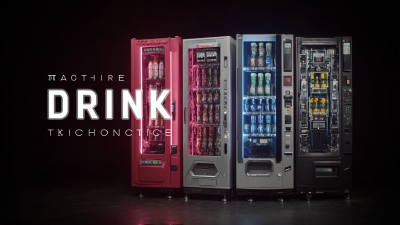
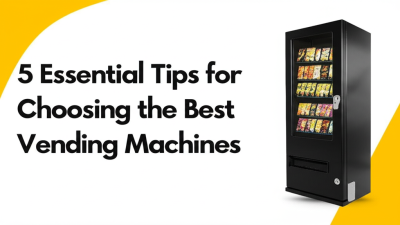
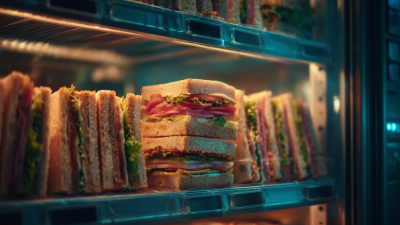
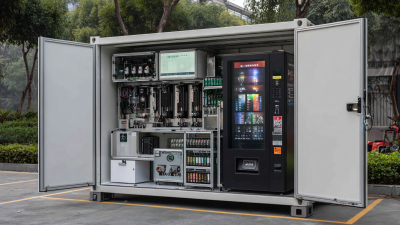
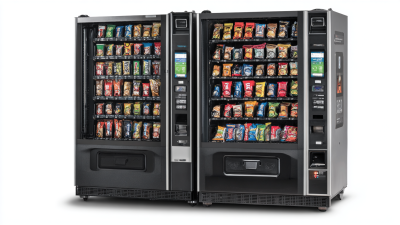
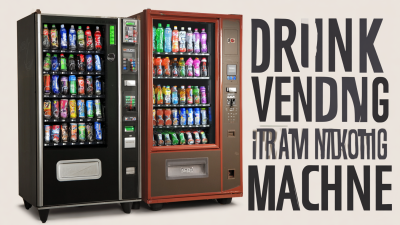
Serving the Vending Industry Since 1931
Vending.com is the “factory direct supplier” of new and factory “Certified” re-manufactured vending machines, including combo, snack, cold drink, coffee, cold and frozen food, and custom vending machines, all proudly manufactured in the U.S.A.
No need to “pay cash” for your equipment. Up to 100% financing can be provided by our company. Check out our short video to see why Vending.com is the #1 choice for profitable vending!
© 2025, www.actionguardvending.com. All rights reserved.
| Cookie | Duration | Description |
|---|---|---|
| cookielawinfo-checkbox-analytics | 11 months | This cookie is set by GDPR Cookie Consent plugin. The cookie is used to store the user consent for the cookies in the category "Analytics". |
| cookielawinfo-checkbox-functional | 11 months | The cookie is set by GDPR cookie consent to record the user consent for the cookies in the category "Functional". |
| cookielawinfo-checkbox-necessary | 11 months | This cookie is set by GDPR Cookie Consent plugin. The cookies is used to store the user consent for the cookies in the category "Necessary". |
| cookielawinfo-checkbox-others | 11 months | This cookie is set by GDPR Cookie Consent plugin. The cookie is used to store the user consent for the cookies in the category "Other. |
| cookielawinfo-checkbox-performance | 11 months | This cookie is set by GDPR Cookie Consent plugin. The cookie is used to store the user consent for the cookies in the category "Performance". |
| viewed_cookie_policy | 11 months | The cookie is set by the GDPR Cookie Consent plugin and is used to store whether or not user has consented to the use of cookies. It does not store any personal data. |